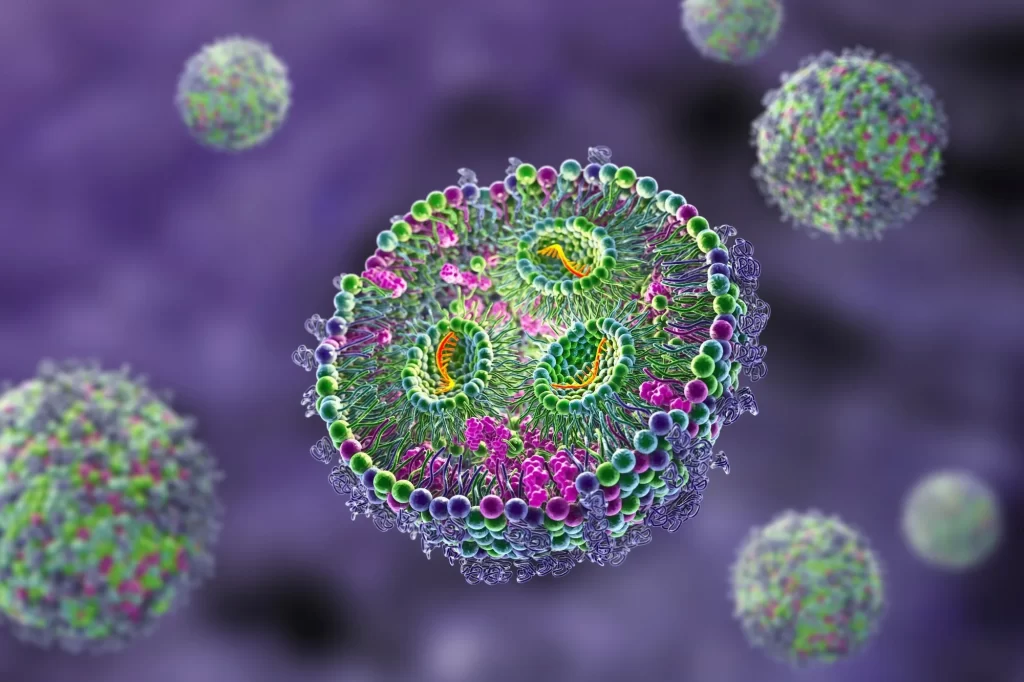In the dynamic field of oncology, the quest for innovative and effective treatments is unceasing. A recent breakthrough that is causing waves of excitement is the application of lipid nanoparticles in cancer treatment, particularly within the landscape of mRNA nanomedicine. This cutting-edge approach holds immense promise, offering new avenues for precision medicine and personalized cancer therapies.
- The Rise of mRNA Nanomedicine:
mRNA nanomedicine has emerged as a transformative tool in the arsenal against cancer. Traditional cancer treatments often come with a myriad of side effects due to their non-specific nature. However, mRNA nanomedicine allows for a more targeted and tailored approach. By utilizing synthetic mRNA sequences, scientists can instruct cells to produce specific proteins that stimulate the immune system’s response to cancer cells.
- Lipid Nanoparticles as Delivery Vehicles:
At the heart of this revolutionary approach lies the use of lipid nanoparticles as efficient carriers for mRNA. Lipid nanoparticles act as protective envelopes, safeguarding the delicate mRNA molecules during their journey to target cells. This delivery system enhances the stability and bioavailability of mRNA, ensuring its safe and effective delivery to the intended destination within the body.
- Synthetic Nanoparticles for Vaccines and Immunotherapy:
Lipid nanoparticles have already showcased their prowess in the development of vaccines, notably in the case of mRNA COVID-19 vaccines. The success of these vaccines has paved the way for their application in cancer immunotherapy. By leveraging synthetic nanoparticles, scientists can engineer targeted therapies that harness the body’s immune system to recognize and eliminate cancer cells specifically.
- Precision and Personalization in Cancer Treatment:
The utilization of lipid nanoparticles in mRNA nanomedicine allows for a level of precision that was once considered elusive in cancer treatment. Tailoring therapies to individual genetic profiles and specific cancer types opens the door to personalized medicine. This not only enhances treatment efficacy but also reduces adverse effects, marking a significant shift in the paradigm of cancer care.
- Challenges and Future Directions:
While the potential of lipid nanoparticles in cancer treatment is vast, challenges such as scalability, long-term safety, and delivery efficiency remain focal points of ongoing research. Scientists are diligently working to optimize these nanoparticles for clinical use, ensuring their efficacy and safety over extended periods.
- Ethical Considerations and Regulatory Frameworks:
As with any groundbreaking medical technology, ethical considerations and robust regulatory frameworks are paramount. Striking a balance between innovation and patient safety is crucial to the responsible advancement of lipid nanoparticle-based cancer treatments. Establishing guidelines for ethical research practices and transparent clinical trials is imperative for building public trust and ensuring the ethical deployment of these technologies.
Conclusion:
The integration of lipid nanoparticles in mRNA nanomedicine is reshaping the landscape of cancer treatment. The potential to leverage synthetic nanoparticles for vaccines and immunotherapy holds the promise of more effective, targeted, and personalized interventions. As research progresses, lipid nanoparticles are poised to play a pivotal role in ushering in a new era of precision oncology, offering hope to patients and fundamentally changing the way we approach and combat cancer. The future is bright, with lipid nanoparticles at the forefront of the revolution in oncology.


